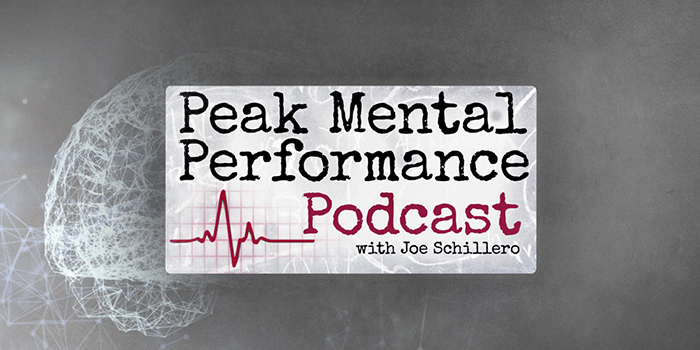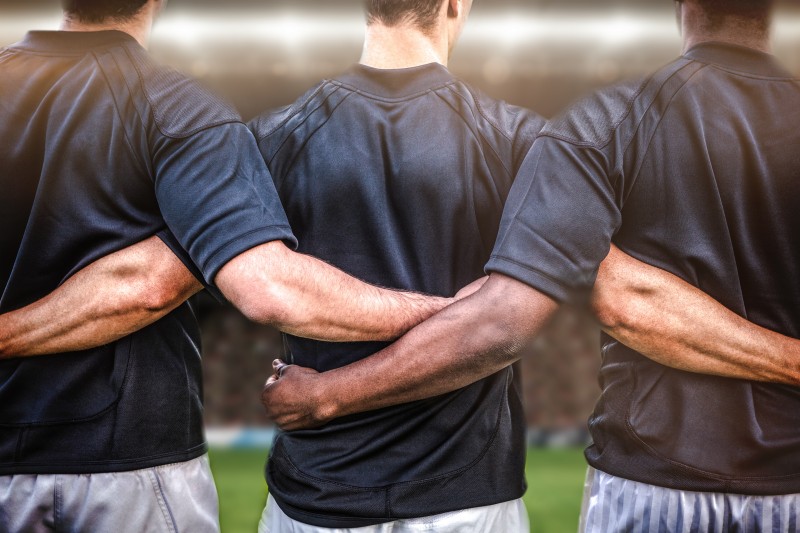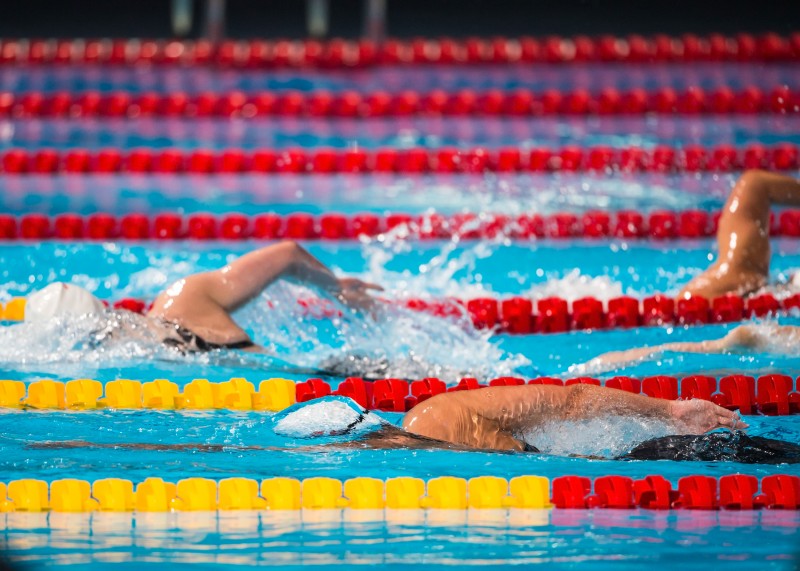
Author's Note: While this article is directed toward student-athletes and coaches, the concepts and resources can still apply to broader scenarios involving mental health. I encourage you to think through ways to implement these resources in your own situation, regardless of who your “team” is.
Being an athlete imposes a unique set of unique demands, both physically and mentally. Being a student-athlete at the college level brings a whole other layer of complex demands and stressors that affect an athlete’s well-being, as well as their athletic performance. Mental health continues to grow as a topic of discussion in our country, but often times athletes are under-recognized in this area, despite rates of mental health concerns being similar to that of non-athletes.1 Student-athletes also undergo a different set of stressors than other college students, which can include extensive time demands, pressures to achieve, injuries, overtraining or burnout, and conflict with teammates or coaches. Specific injuries such as concussions can also contribute uniquely to mental health symptoms in athletes, such as depression.2 Several survey studies have also shown that eating disorder symptom prevalence is similar in the student-athlete population as in the non-athlete population (particularly for female athletes), and the true number of athletes facing symptoms may be underreported because of how many athletes have symptoms that are problematic yet sub-clinical.6
Image credit: Bruno Rosa © 123rf.com
Many mental health professionals, such as Dr. Lisa Lewis (licensed psychologist with a specialization in sports psychology from Boston University) note that many of the characteristics that draw people to sports (and even help them excel) can put those same athletes at risk for mental health conditions:
“Athletes are typically high-achievers. They're driven, and organized, and focused, and at higher levels of performance and competition, that can cause worry, tension, anxiety, irritability, and unhappiness in the best of us! So I do think that folks who are under great pressure to perform and are also taxing their bodies and their daily schedules are more vulnerable to mental health symptoms. In addition, sometimes it is important to consider the personality type of a high-achiever, particularly in a sport that is extremely precise. In other words, if a person already has perfectionist tendencies, then that will be exasperated by the sport. In some respects, it's very helpful, but in others it can cause issues.”7
Despite mental health being an important issue for student-athletes (and athletes in general), there are unique barriers that prevent many athletes from pursuing appropriate care (leading to a greater risk for suicide in the athletic population).3 These barriers include fears that coaches and administration may not be supportive, and awareness of the general stigma surrounding mental health (such as the misconception that pursuing mental health care is a sign of weakness, fear of losing their starting job, etc.).
As more research continues to be done on mental health and student-athletes, new best practices are being created (such as the "Mental Health Best Practices" document from the NCAA Sports Science Institute)4, and many schools are putting in place specific mental health policies and procedures to support their athletes. Coaches, athletes, and administrators are beginning to recognize more and more that supporting student-athlete mental health not only benefits their emotional well-being but also their athletic performance and overall academic success. More student-athletes themselves are also beginning to recognize mental health as simply another part of the training and self-care process, and not a sign of weakness or lack of mental toughness.
Even coaches that are under immense pressure to focus on what is taking place on the field, such as The Ohio State University Head Football Coach Urban Meyer, are recognizing the importance of supporting off the field student-athlete well-being as well:
“This is a topic of conversation among my colleagues in the profession now. It’s constant now. Fifteen years ago, no. Back then it was, 'Tell me about the spread offense. Tell me about punt return.' Now it’s about the mental and well-being of your players.”9
Even with this growing emphasis on student-athlete mental health, there are only so many resources available (particularly at schools with globally limited resources and staffing). While some institutions have a dedicated mental health staff for athletics, many do not have an athlete-specific structure in place. A recent study surveying 127 head athletic trainers at Division I NCAA schools also concluded that “there is wide variability on how mental health services are provided to NCAA Division I student-athletes. Some mental health care providers are located offsite, while some provide care in the training room setting. Also, there are inconsistencies in the use of standardized screening tools for mental health evaluation. There is no standard collaborative or integrated care delivery model for student-athletes.”5
With this wide procedural variability, combined with the unique barriers facing student-athletes, it can be easy for athletes to go through an entire season (or even college career) without addressing mental health concerns. As a number of professionals in mental health and college athletics note in the NCAA’s "Mind, Body and Sport" guide to student-athlete mental health"8, the conversation is moving in a great direction, but there are still numerous challenges to providing student-athletes with optimal mental health care. One variable that is consistent across all schools, programs, and teams, however, is the potential role of the team themselves. As administrations and coaches seek new ways to support student-athlete mental health, teammates can play a vital role in supporting the mental health and well-being of their fellow athletes. Many current resources focus on what school administrators can do to support student-athlete mental health, but many athletes are also looking for ways they can help facilitate positive change in this area for their teammates.

Image credit: Wavebreak Media Ltd © 123rf.com
With this being a topic of interest for many of the student-athletes I have encountered and worked with, I wanted to provide some helpful resources for how they can impact and support each other in their role as a fellow athlete. Part of making impactful change in any area is creating culture change from the ground up. Student-athletes have the ability to support each other and promote a culture that emphasizes the importance of mental health in their daily interactions with their teammates (as well as coaches and administrators). This topic and the challenges associated with it are complex and multilayered, and certainly go far beyond the scope of this article. The goal of this article is to provide introductory context and a starting point for coaches and athletes looking to facilitate better support for their teams. I plan on writing more on this topic in the future, but as a starting point, here are three ways for student-athletes to support the mental health of their teammates:
1. Create and contribute to a team culture that reduces stigma and emphasizes the importance of mental health.
As referenced earlier, stigma and perceived lack of support (even when support is there for the athlete) regarding mental health issues prevent many student-athletes from seeking care. De-stigmatizing mental health and normalizing the conversation surrounding it can make a world of difference. Recommendations on strategies for reducing mental health stigma vary, but research has suggested that education and contact are effective ways to reduce stigma.10
Education
Education strategies can help replace myths and negative stigma with facts and resources. As more resources become available regarding mental health, promoting positive and factual resources is shown as an effective way to reduce stigma. As a student-athlete, this can be something as simple as sharing an article with your teammates that you know can help start conversations and provide encouragement. A great example of this would be sharing the recent article by Kevin Love (professional basketball player for the Cleveland Cavaliers) about his struggles with panic attacks and how he is taking steps to overcome them and break stigma in the NBA.11 Sharing more formal resources, such as the aforementioned "Mind, Body and Sport" guide to student-athlete mental wellness, or attending educational sessions on mental well-being around campus with your teammates can help to further break negative stigma. Educating and encouraging teammates on ways to improve recovery through things like better sleep can also be very impactful in promoting a culture of mental well-being.
Contact
Contact strategies can include a number of social initiatives that help facilitate the conversation on mental health and empower student-athletes to show transparency with their teammates. Some of the most effective ways to implement this strategy work in conjunction with education. One example of this is organizing an anxiety-reduction workshop during Mental Health Awareness Week, and building in discussion facilitated by counseling staff on campus. These types of initiatives are great projects for student athlete advisory councils or similar student-athlete leadership groups. These types of initiatives also help display the passion and interest in mental health to administration in the athletic department.
Combining education and contact with teammates in order to normalize the mental health conversation can create an impactful culture change across a team and school.
2. Be knowledgeable in the resources, policies, and procedures at your school, and promote best practices if they are not in place.
As mentioned before, procedures and practices vary from school to school. While no athlete can commit every single policy or resource to memory, it is important for athletes to be aware of the system in place and know how to access care for themselves or teammates. As a student-athlete, make sure you speak with your coaches, athletic trainers, and athletics administration to find out what the student-athlete mental health practices are at your school. The NCAA Sport Science Institute’s Best Practices for Mental Health12 recommend four key components to understand and support student-athlete mental wellness on a college campus:
- Clinical licensure of practitioners providing mental health care
- Procedures for identification and referral of student-athletes to qualified practitioners
- Pre-participation mental health screening
- Health-promoting environments that support mental well-being and resilience
These best practices are designed to provide recommendations for athletics and sports medicine departments regardless of size and resources, so if these components are not in place at your school, I encourage you to share them (as well as the "Mind, Body and Sport" guide to student athlete wellness8) with your coaches and athletic administration. These guides provide information on useful checklists and procedures that can be used in the structure and action plan for your school. Utilizing student-athlete leadership positions to promote the importance of adherence to best practices and the overall importance of student-athlete mental health is something I encourage all athletes to do. As you approach these conversations, I also encourage you to be mindful that often times universities are already stretching resources to address the broader mental health issues for students, and they are often viewing these issues through the general student perspective. Being passionate and proactive yet also patient in these discussions and doing your best to educate non-athletics staff on the unique needs of student-athletes is important for enacting change administratively at your school.
If your school does have practices in place but you have found that many athletes (or even coaches) are not aware of them, this is a great opportunity to go back to the education piece of creating a positive culture. Help make mental health care and the system at your school common knowledge through every opportunity possible. Normalizing the mental health conversation can help de-stigmatize this process and help your teammates view addressing a mental health concern the same way they would view going to the athletic trainer for a soft tissue injury.

Image credit: mezzotint123rf © 123rf.com
3. “See something, say something.”
Conversations about mental health can be tough, and it can be scary to approach a teammate about something you are concerned about for them. I have found that many student-athletes hesitate to engage in these conversations because of the two points discussed already: stigma surrounding mental health, and lack of knowledge of inter-department procedures for mental health concerns. Once these two barriers are addressed, it often comes down to these conversations simply being “scary” or “awkward.” Many student-athletes also express concerns about being unqualified to have a conversation about mental health, or being worried about saying the wrong thing.
These concerns are certainly understandable, but it is important to remember that you do not need to be a licensed counselor to have a basic conversation with someone about how they are doing. While you certainly want to recommend professional care to the teammate you are concerned about—and do not want to provide unnecessary advice—simply showing that you care about your teammate and providing a listening ear is something every athlete can do.
How do you know when your teammate may be struggling with something? There are a number of behaviors that may indicate a concern for an athlete, including (but not limited to)8:
- Changes in eating and sleeping habits
- Unexplained weight loss or gain
- Drug or alcohol abuse
- Withdrawing from social contact
- Decreased interest in activities the student-athlete previously considered enjoyable, or taking up risky behavior
- Talking about death, dying, or “going away”
- Loss of emotion or sudden changes of emotion within a short period
- Problems concentrating, focusing, or remembering
- Frequent complaints of fatigue, illness, or being injured that prevent participation
- Unexplained wounds or deliberate self-harm
- Becoming more irritable or having problems managing anger
The full list of can be found in the Guide to Student-Athlete Wellness.8
All of us can deal with these types of behaviors from time to time, and it is certainly not the job of the athlete to diagnose a teammate as having a mental illness. These are all reasons, however, for any of us to ask someone we care about if they are doing okay. Try not to view these conversations as something designed to fix the problem, and instead approach it with the main goal being to show your teammate that you care about them and are willing to discuss ways to help if they are interested.
Procedurally, specific guidelines and reporting structures will vary by school, so be sure to understand the mental health care policies for your athletic department (as discussed in the previous section of this article). These policies should also outline ways to understand whether a mental health concern for a teammate is an emergency or non-emergency concern (which will change how you approach the situation). If these guidelines are not clearly stated for you, the checklists provided in the aforementioned "Mind, Body and Sport" guide to student-athlete wellness8 are a great starting point, and the counseling and psychological services center at your school should have resources on how to react to a given situation as well. Remember as you approach situations with a teammate that you are not expected to be perfect or have all the answers. Simply showing you care, opening a means for dialogue, and providing information on helpful resources if they are interested can go a long way to supporting your teammate. Then make sure to be knowledgeable of situations that require reporting to your athletic department, or contact of emergency services, as outlined in your school policies.
In terms of the conversation itself, there are a few suggestions that the NCAA’s Guide to Student-Athlete Wellness provides for approaching an athlete that you are concerned about8:
- Practice empathetic listening.
- Focus on the individual as a person and not as an athlete.
- De-stigmatize care-seeking for mental health concerns.
- If you think the student-athlete might be a threat to himself/herself or others, enlist emergency mental health services.
These are all things we have discussed throughout this article, and come back to education and contact, and making sure that we are all contributing to a culture that values mental health and well-being. In writing this article, I also had several conversations with Dr. Steve Graef, Counseling and Sport Psychologist for The Ohio State University Athletic Department. Dr. Graef is part of the mental health team for athletics in place at OSU, and also a former student-athlete himself (playing on OSU’s 2003 National Championship football team). We discussed this topic of how student-athletes can support teammate mental health, and I recorded one of our conversations that I believe provides great insight for student-athletes seeking to better support their teammates.
By the minute:
- (0:18) What is the role that student-athletes have in supporting the mental health of their teammates?
- (1:30) What kinds of things are a reason to have a conversation with a teammate?
- (3:48) How should student-athletes approach “tough” conversations with their teammates?
- (5:26) How can mental health professionals that don’t have an athletic background better connect with student-athletes?
- (8:02) What is the biggest thing student-athletes should remember as they work to support each other from a mental health perspective?
As I mentioned earlier in this article, the topic of mental health is complex and goes far beyond the scope of this article, but this should be a good starting point for athletes seeking to support their teammates and promote a culture of mental health and well-being for their team. I encourage you to be proactive with yourself as well, and make your own mental health and well-being a priority in your life. If each athlete is proactive with both themselves and their teammates around them, powerful things can happen that leave a positive impact that lasts far beyond your college career.
Additional Helpful Resources
- NCAA Sport Science Institute Mental Health Best Practices
- Mind, Body and Sport: Understanding and Supporting Student-Athlete Mental Wellness
- Mental Health First Aid Resources
References
- Reardon, C. L., & Factor, R. M. (2010). Sport psychiatry: A systematic review of diagnosis and medical treatment of mental illness in athletes. Sports Medicine, 40, 961–980.
- Vargas, G., Rabinowitz, A., Meyer, J., & Arnett, P. A. (2015). Predictors and prevalence of postconcussion depression symptoms in collegiate athletes. Journal of Athletic Training, 50, 250–255.
- Armstrong, S. N., Burcin, M. M., Bjerke, W. S., & Early, J. (2015). Depression in student athletes: A particularly at-risk group? A systematic review of the literature. Athletic Insight, 7.
- http://www.ncaa.org/sport-science-institute/mental-health-best-practices
- Sudano, L. E., & Miles, C. M. (2017). Mental Health Services in NCAA Division I Athletics: A Survey of Head ATCs. Sports Health, 9(3), 262–267.
- Christy Greenleaf PhD, Trent A. Petrie PhD, Jennifer Carter PhD & Justine J. Reel PhD (2010) Female Collegiate Athletes: Prevalence of Eating Disorders and Disordered Eating Behaviors, Journal of American College Health, 57:5, 489-496, DOI: 10.3200/JACH.57.5.489-496
- Mental Health & Strength Training Interview with Dr. Lisa Lewis [E-mail interview]. (2016, June 02).
- Mind, Body and Sport: Understanding and Supporting Student-Athlete Mental Wellness. (2014). Indianapolis, IN: National Collegiate Athletic Association.
- https://www.si.com/college-football/2018/05/01/urban-meyer-ohio-state-buckeyes-robert-landers
- Mental illness stigma: concepts, consequences, and initiatives to reduce stigma. Rüsch N, Angermeyer MC, Corrigan PW. Eur Psychiatry. 2005 Dec;20(8):529-39. Epub 2005 Sep 19. Review.
- https://www.theplayerstribune.com/en-us/articles/kevin-love-everyone-is-going-through-something
- https://www.ncaa.org/sites/default/files/HS_Mental-Health-Best-Practices_20160317.pdf












2 Comments